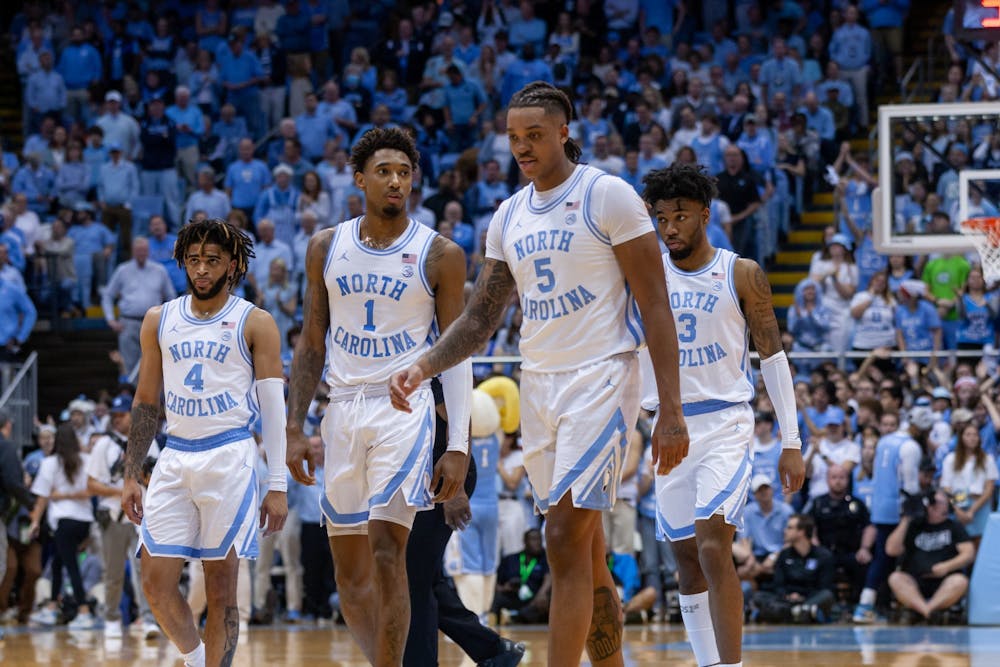Following UNC men's basketball's most recent NCAA title in 2017, there has been a shift in the culture of North Carolina's team, as one-and-dones began to plague the team year after year.
As a result, North Carolina's squads in recent years never meshed with underdeveloped players, leaving behind a fragmented, dysfunctional team.
Enter the NIL policy in June 2021. After college athletes were granted the ability to profit from their name, image and likeness, players gained an incentive to keep playing in college and develop their game. The policy allows for athletes to make money through brand partnerships and merchandise sales, among other things.
For many athletes and sports fans alike, this change in NCAA policy was long overdue.
Before this agreement went into effect, college athletes were essentially working a full-time job with no pay. The prospect of an NBA contract steered many to leave college as underclassmen, wanting the opportunity to make money from the game they had dedicated their entire life to playing.
There are critics of the NIL agreement, though. Some argue that, in return for playing, athletes get a college education. While this is an opportunity of value, the NCAA disproportionately profits from this exchange. For example, the body earns over $1 billion in revenue from March Madness alone.
This imbalance is an outright exploitation of players and their talent. Players practice for hours a week and feel the pressure from fans in stadiums that can sometimes fit over 20,000 people. It seems reasonable enough that they should be able to profit off of their talent — especially when the check is not coming from the NCAA but from other brands that want to support athletes.
When considering the risk of losing NBA draft stock or getting injured if they stayed in school for another year, many players understandably chose the chance to make money playing professionally. Now, NIL offers a more balanced decision: college athletes can continue the essential development process, earn a degree and have another shot at March Madness all while potentially making thousands of dollars.
After almost two years of this policy, the positive effects are apparent. The UNC men’s basketball team is transitioning back to the traditional dynamic of veteran players leading the team. Throughout the 2022-2023 basketball season, senior Armando Bacot and graduate Leaky Black have been the backbone of North Carolina's offense and defense, respectively, with Bacot breaking double-double and rebound school records and Black consistently shutting down the ACC’s toughest players.



